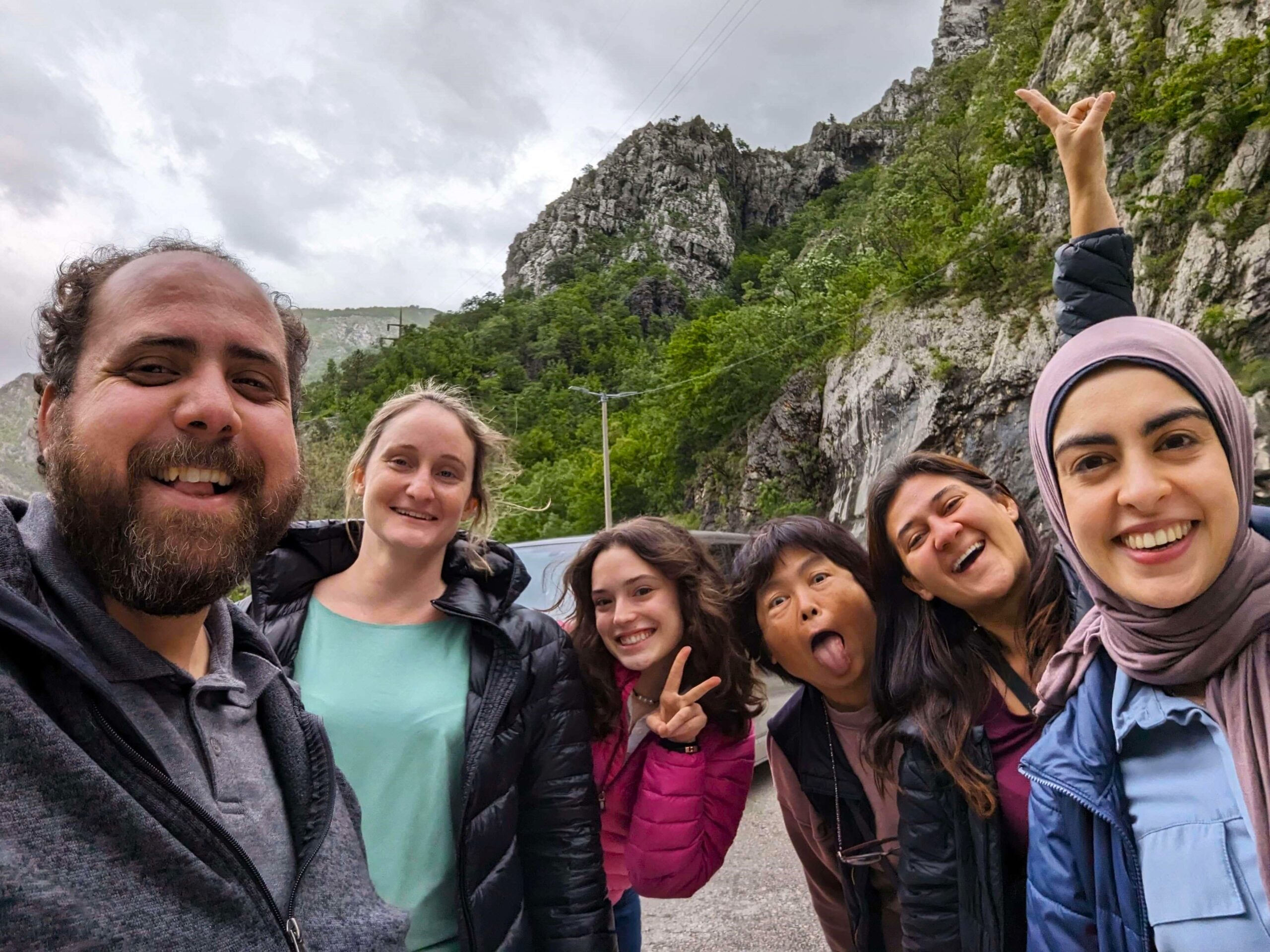Which Travel Insurance Policy Should You Pick?
Travel insurance is an essential part of any trip, offering peace of mind and protection against unforeseen events. Here at The Hybrid Tours, we require all of our participants to have valid travel insurance throughout their trip with us in order to be able to take part in our tours. You can read more about our Terms and Conditions here.
We normally split up travel insurance into 2 different categories: the actual traveling part and the medical part. Here’s more information on what to look out for and make sure your insurance includes both categories:
1. The Travel Part: Cancellations, Delays, Lost Luggage, Theft, and Electronics’ Damage or Theft
One of the key reasons to purchase travel insurance is to safeguard against disruptions to your trip. You should look into policies that cover:
– Trip Cancellations and Interruptions: If your trip is canceled or cut short due to unforeseen circumstances like illness, natural disasters, or other emergencies, you’ll want a policy that reimburses you for non-refundable expenses.
– Delays: Missed flights, longer layovers, or unexpected delays can add significant costs to your trip. Make sure your policy covers these situations, and that these include compensation for accommodation, meals, and alternative travel arrangements if there are any delays.
– Lost or Stolen Luggage: This is one of the most horrible travel incidents out there, and one that we seriously wish no one ever has to go through. If you do, you need to report this to the local authorities (airport, police station, etc), get written confirmation of your lost, stolen, or delayed baggage, then file a claim. You should choose insurance that covers this.
– Theft: theft of personal items or travel documents can quickly mess up your plans. Not all travel insurance policies automatically cover this, make sure yours does. If you travel with expensive items, your insurance coverage should be high enough to deal with these losses.
– Electronic Items: you might be traveling with valuable electronic devices such as laptops, professional cameras, and smartphones. Most policies do NOT cover these. You might have to pay additional coverage, or there might be limits on claims. If the item is of extreme value, consider buying additional insurance for the electronic devices you travel with. This could be anything from a monthly payment to an annual one to cover them breaking, getting wet, and more.
-Traveling on a weaker passport? You may need to apply in advance for visas — and that’s where good travel insurance becomes essential. Look for policies that cover visa rejections, trip cancellations, and embassy-required documentation, which can help you recover nonrefundable costs if your visa is denied or delayed.

2. The Medical Part: Repatriation, Injuries, and More
Traveling can be unpredictable, and medical emergencies can happen, even to the most seasoned travelers. When evaluating the medical aspect of travel insurance, focus on:
– Emergency Medical Coverage: This includes hospital visits, surgery, medication, and more. Make sure the policy provides enough coverage for the country you’re visiting, as medical costs can vary. This should be at least the equivalent of $50k USD.
– Repatriation: In the event of a serious injury or illness, repatriation coverage ensures you can be transported back to your home country for treatment or an emergency surgery.
– Pre-existing Conditions: If you have underlying medical conditions, choose a policy that covers these. Not all policies do, and you need to be open and transparent about your provider if you do have any conditions to ensure coverage while traveling. If you don’t, this can be considered as fraud or your insurance will be void.
– Age Considerations: Some policies have age limits or higher premiums for older travelers. If you’re older or have medical issues, seek policies that cater specifically to your needs.
Annual Policies: A Cost-Effective Option
We personally recommend travelers get an annual policy, even if you don’t travel that frequently. This can easily be a few hundred dollars but will have you covered for 365 days of the year. This will save you the hassle of renewing your policy each time you travel.
What about travel advisories?
In today’s world, travel advisories are common. You might have realized by now that here at The Hybrid Tours we take them with a grain of salt. These are politically-biased and not always accurate. We organize tours to more difficult destinations and this sometimes means that there might be some travel advisories in place for the country we’re visiting.
So how do you navigate travel advisories when it comes to travel insurance policies?
If your insurance is issued by your government (this is very common in the EU), and your country has a travel advisory in place for the country you’re visiting, we suggest purchasing additional insurance JUST for the duration of your trip. If you have any questions about this, please reach out to us directly.
Some countries have higher risks due to political instability, health outbreaks, or natural disasters. This is what travel advisories are about – this doesn’t mean you will necessarily be unsafe if you travel there.

Some providers we know of:
– Safety Wing: affordable travel plans for global citizens or those traveling for extended periods of time.
–WorldNomads: ideal for digital nomads and frequent travelers. This is pricey but has very extensive travel coverage.
– Battleface: Known for covering unusual destinations and offering customizable plans, including coverage for travelers with underlying medical conditions.
– Global Rescue: Offers robust medical evacuation and repatriation services, ideal for those venturing into remote or high-risk areas.
– Global Underwriters: Provides comprehensive coverage, including for pre-existing conditions, and is a good option for older travelers.
– High Risk Voyager: Specializes in coverage for travelers heading to more off-the-beaten path regions, making it an excellent choice for adventure travelers.
– Allianz: a reputable company that offers services for citizens across multiple countries.

Important Note
While we recommend that all guests travel with at least basic medical and travel insurance that covers the activities of The Hybrid Tour you’ve chosen, it’s essential to understand that the above recommendations are provided for informational purposes only. We are not in any way responsible for the insurance policy you choose. We strongly advise you to thoroughly review the policy details, coverage limits, and exclusions to ensure the insurance meets your specific needs before making a purchase.
Final Thoughts
Before purchasing travel insurance, carefully consider your travel plans, health status, and the destinations you’ll be visiting. Make sure your chosen policy covers both the travel and medical aspects, as well as any specific needs you might have. If you’re purchasing insurance for a specific trip, like a Hybrid Tour, make sure that it covers the destination and the activities on the ground. And remember, if you’re a frequent traveler, an annual policy might be the best way to stay protected all year round.
Remember to have this purchased a few days before you depart on your Hybrid Tour. Most travel insurance policies kick in at least 2-3 days after you’ve purchased it. Just make sure it’s running by the time you are on your way to the airport. Don’t forget to have a look at our optional Jordan reading list and the packing list! We look forward to seeing you soon!












